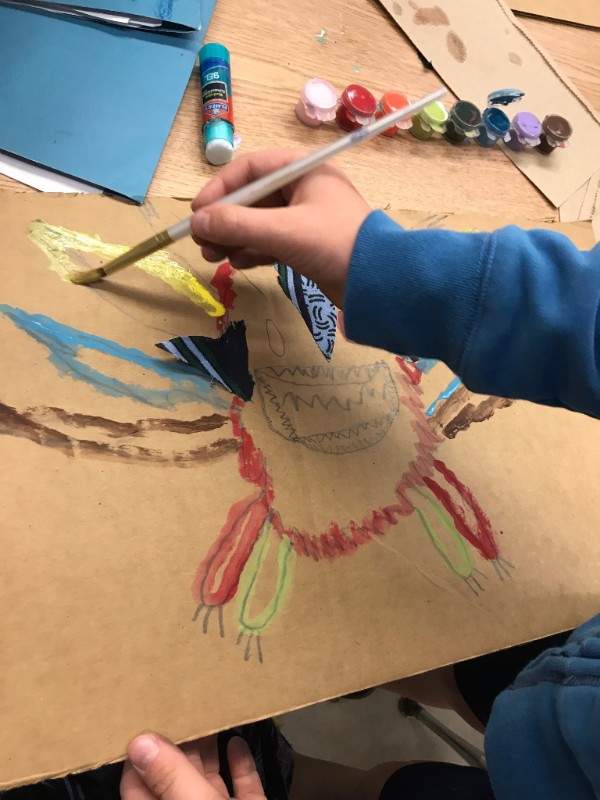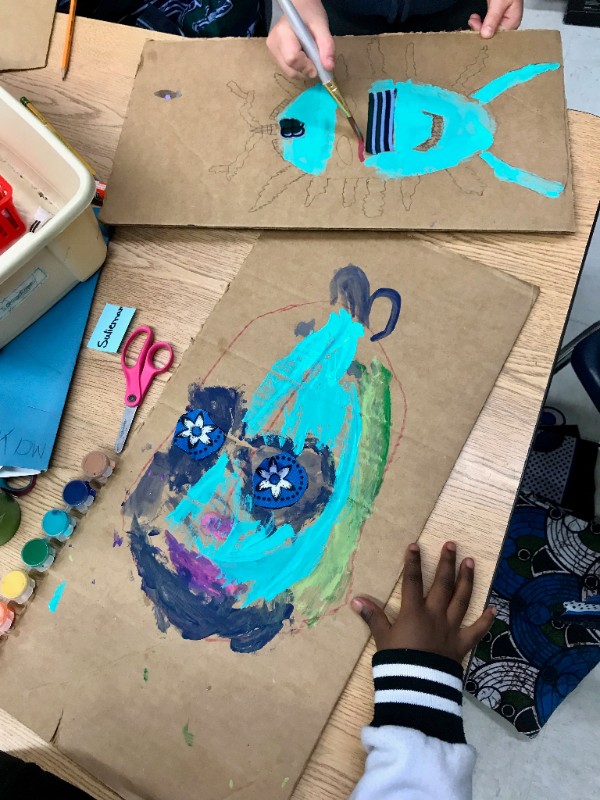Megan Cogburn (PhD student, Anthropology) and Jordan MacKenzie (CAS Adjunct Lecturer, Swahili) recently led a Tanzania/Swahili club at Littlewood Elementary

School in Gainesville as a part of their multi-age classroom program. Megan and Jordan showed students between the ages of five and seven objects of cultural significance in East Africa, namely: kangas, kitenge, Maasai shukas and jewelry, as well as masks from across the continent. Following a lesson on the names and functions of the items, the children made their own masks, all of which were very inspired and interesting. Megan and Jordan were truly impressed by the concentration and interest of the students. This event marked the third of four such club meetings. The first focused on the diverse geography of the African continent and Swahili greetings and animal names, and the second on cooking Tanzanian-style chapati. Megan and Jordan hope to develop an illustrated curriculum for this hands-on approach to teaching about Africa in the early elementary school classroom. They report that it has been a thoroughly enjoyable experience.
Jordan received his MA in Linguistics from UF in 2016. His graduate studies were funded by an Academic-year FLAS fellowship from CAS, as well as two summer FLAS fellowships, one from Yale to study in Tanzania (where he met Megan), and another to study Yorùbá through AFLI. For the 2016–2017 academic year he researched tropical fruit nomenclature in Trinidad & Tobago per a Fulbright grant. Currently, Jordan serves as an adjunct lecturer in Swahili for CAS and also as copy/translation editor for the Sahel Research Group and the Yorùbá Studies Review. He hopes to pursue a PhD in Linguistics focusing on the remnants of Yorùbá and Bantu languages in the Cuba and Brazil, specifically with regard to intersections of language, class, race, and gender.

Megan is a second year PhD student in medical anthropology at UF. She received her MA in anthropology at UF in 2016. She has been the recipient of two academic Swahili FLAS fellowships and one summer FLAS, where she participated in the Fulbright-Hays advanced Swahili program outside of Arusha and met Jordan. For seven months in 2016 Megan had the unique opportunity to work as an ethnographic researcher for a large maternal and neonatal health project in Mpwapwa, Tanzania. While there she also conducted her own pre-dissertation research on maternal health governance and the shifting pregnancy and childbirth-related experiences of women, health care workers, and traditional birth attendants in rural communities. She plans to return to Tanzania to continue this research for her dissertation on the intended and unintended effects of the indicator-driven push for more facility births in global maternal health care.